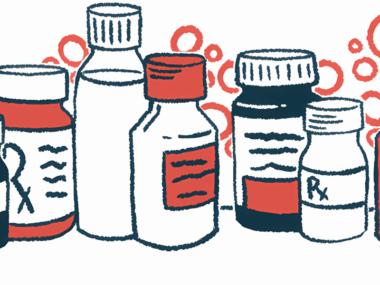DMTs before, during MS pregnancy generally safe: Registry data
Increasing number of patients use monoclonal antibodies
Written by |

About 62% of multiple sclerosis (MS) patients use disease-modifying therapies (DMTs) before and during pregnancy, and the medications don’t appear to harm their health or their babies’ health, recently reported data from an international registry show.
Most pregnancies resulted in live, full-term births, and these births generally occurred without complications. Most babies were born healthy and were breastfed, even when mothers resumed DMTs shortly after pregnancy.
The data were reported in a study, “Four years on: Pregnancy and birth outcomes reported in the MSBase pregnancy, neonatal outcomes, and Women’s Health Registry (2020–2024),” published in the Multiple Sclerosis Journal.
The report, the first from the registry, “shows that an increasing number of pregnancies are conceived on monoclonal antibody therapies, confirming increased confidence in their use in the [period surrounding conception],” the researchers wrote. “Reassuringly our data do not show any safety issues at present.”
MS is generally diagnosed in people in their 30s to 50s, and the disease is about three times more likely to affect women than men. This means people with MS, including those in their reproductive years, may use DMTs for most of their lives. DMTs are used to reduce disease activity and slow its progression.
DMTs, MS, and pregnancy
“Family planning is an important aspect” of MS management, yet “knowledge gaps remain” about the risks of exposing mothers and babies to DMTs, the researchers wrote.
They analyzed data from the MSBase Pregnancy, Neonatal Outcomes and Women’s Health Registry — a recently created database that collects detailed maternal and newborn health outcomes — between May 2020 and August 2024, across 45 countries.
Among 2,146 women with 2,517 pregnancies from May, 1,887 had relapsing-remitting MS. Another 21 had neuromyelitis optica spectrum disorder (NMOSD), an autoimmune disorder similar to MS. Twelve had primary progressive MS (PPMS), and two had radiologically isolated syndrome (RIS), meaning they had brain lesions suggestive of MS, but no disease-related symptoms.
Most women (84.8%) were pregnant once, while 13.3% were pregnant twice, and 1.9% reported three or more pregnancies. Their average age when they became pregnant was 32, and most had very mild disability from their condition, based on scores from the expanded disability status scale (EDSS).
As of Aug. 1, 2024, 1,922 pregnancies were completed and 101 were ongoing, with a total of 1,644 live births. Most babies were born full term (76.2%), while 9.4% were born preterm. For babies with available data, they were born with a median weight of 3,260 grams (about 7.2 pounds), and most were breastfed (55.8%).
Miscarriage was reported in 13.7% of the pregnancies, and 2.9% were terminated. Six babies died as newborns.
Most patients delivered their babies vaginally (61.6%), followed by planned cesarean section (29.1%). In most cases with available data, there were no pregnancy complications (87.1%). Sixteen women had gestational diabetes, or high blood sugar during pregnancy, and 10 had pregnancy-related high blood pressure.
In the six months before pregnancy, 75% of the patients were taking DMTs, with 18.6% of them discontinuing the treatment before conception and 62% receiving DMTs during pregnancy. The most commonly used treatments during pregnancy were interferon-based medications, glatiramer acetate (sold as Copaxone and generics), dimethyl fumarate (sold as Tecfidera and generics), and antibody-based therapies.
Among breastfed babies, one-third were exposed to DMTs in the first three months of life, most commonly glatiramer acetate, interferon-beta, and Tysabri (natalizumab).
Overall, five babies were born with congenital problems. Three of them were exposed to DMTs, including glatiramer acetate, dimethyl fumarate, and rituximab, during pregnancy.
“Although no safety signals were observed, it is important to continue monitoring for safety signals in real-world databases as the use of highly effective therapies continues to increase [during and after pregnancy],” the researchers wrote.


